Analysis of the third act of the comedy by A.S. Griboedov "Woe from Wit" - presentation
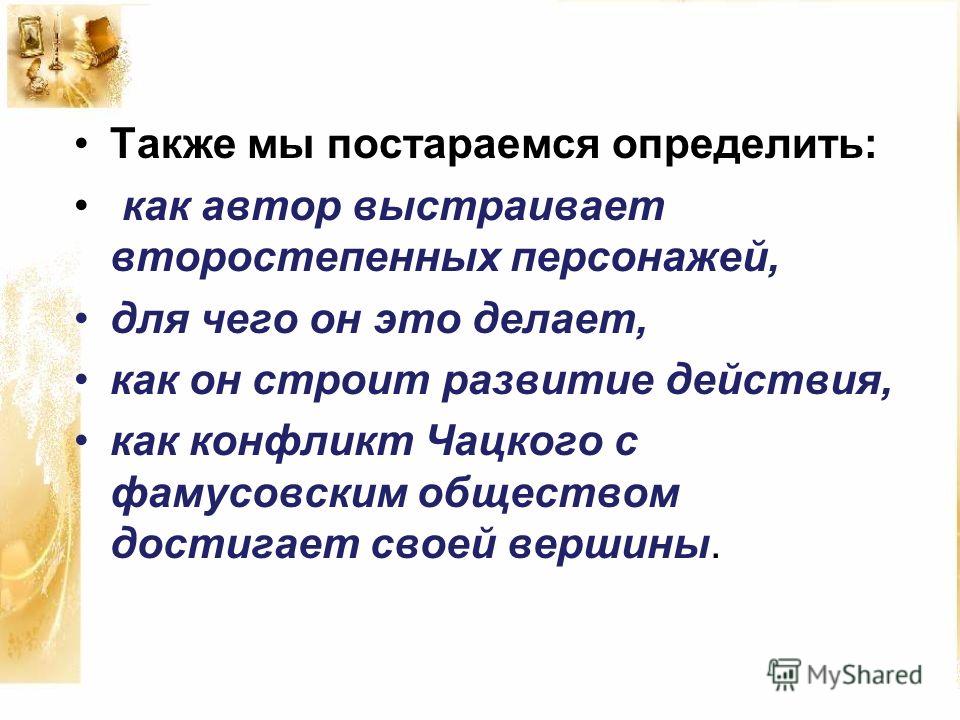
Let's plunge into the atmosphere of the ball of the 19th century The ball is a solemn event, which, like a ritual, has its own ceremonial and rules of conduct, which makes it so majestic and luxurious. Therefore, in order to maintain sophistication and delightfulness, it is necessary to follow the rules of ballroom etiquette.
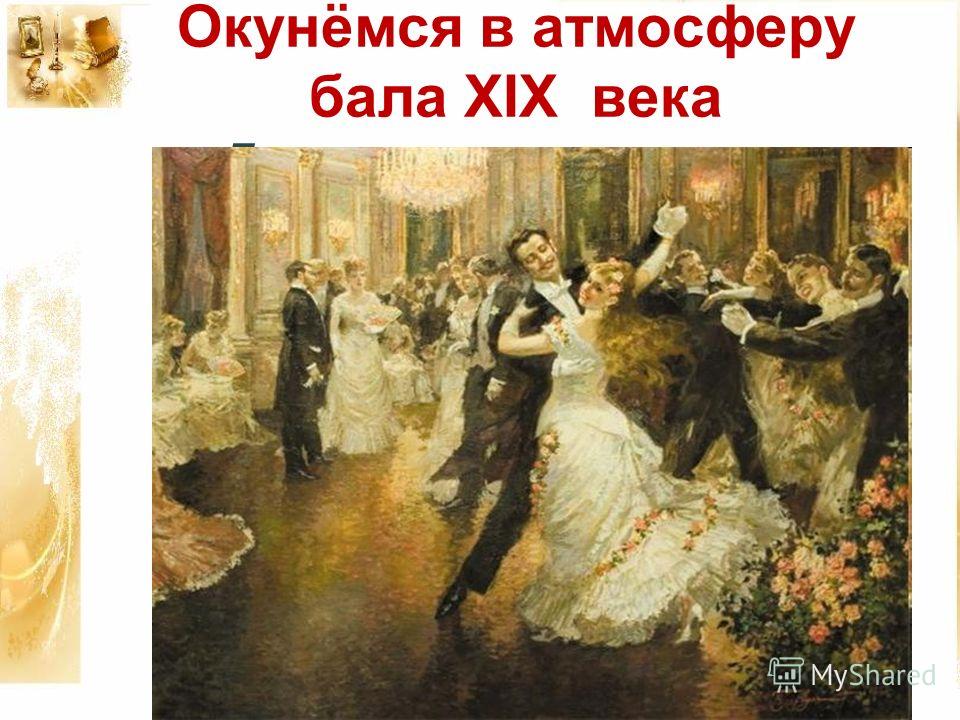
Brass music sounded at the balls, minuet, country dances, Russian amusing dances, Polish and English dances were danced. Thousands of candles burned in the halls. Stairs were covered with expensive carpets, tropical plants crowded in tubs, and fragrant water flowed from specially arranged fountains.

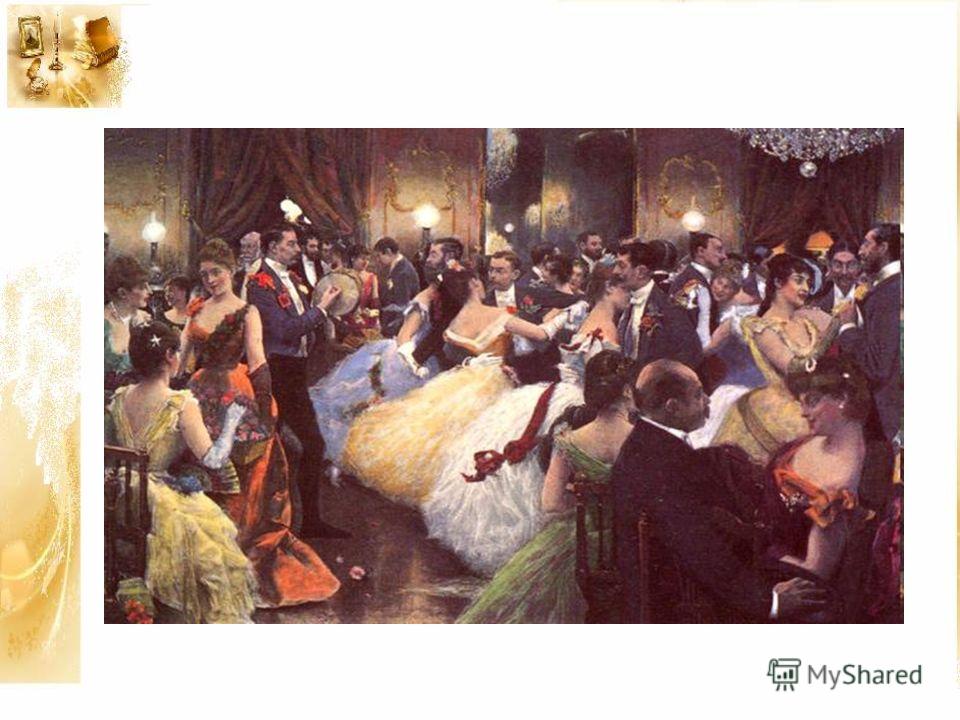
Important! In the ball scene, Griboyedov's innovation was manifested: for the first time in Russian literature, a gallery of human types of noble Moscow was created. The off-stage characters that Chatsky, Famusov, Sofya, and Skalozub talked about in the first acts of the comedy, and episodic characters for the first time do not represent the background of the personal drama of the heroes, but become direct participants in the comedy.
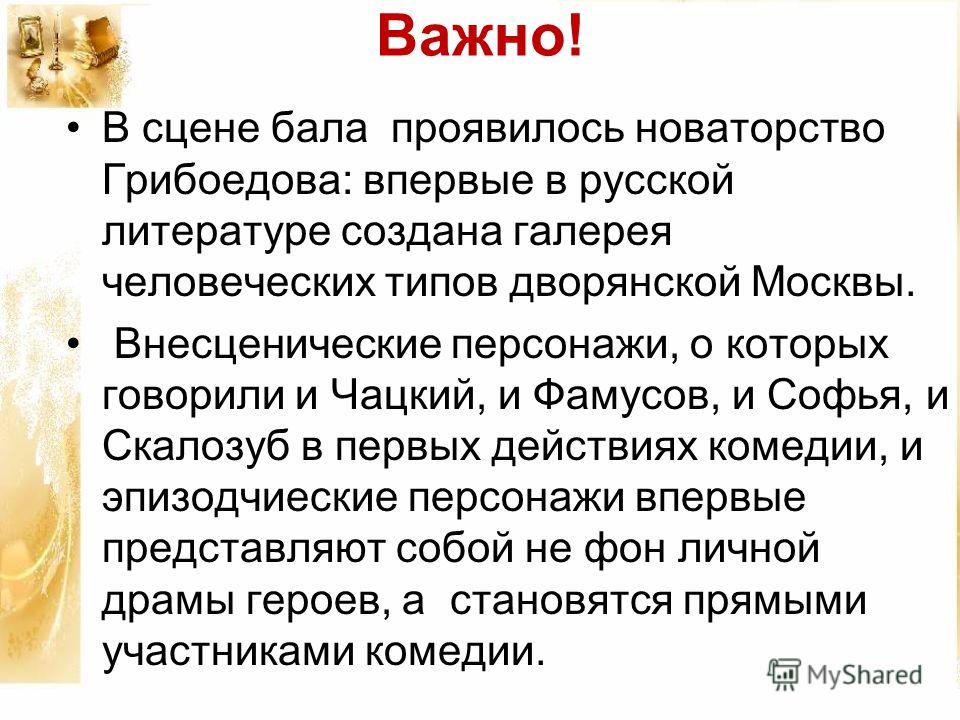
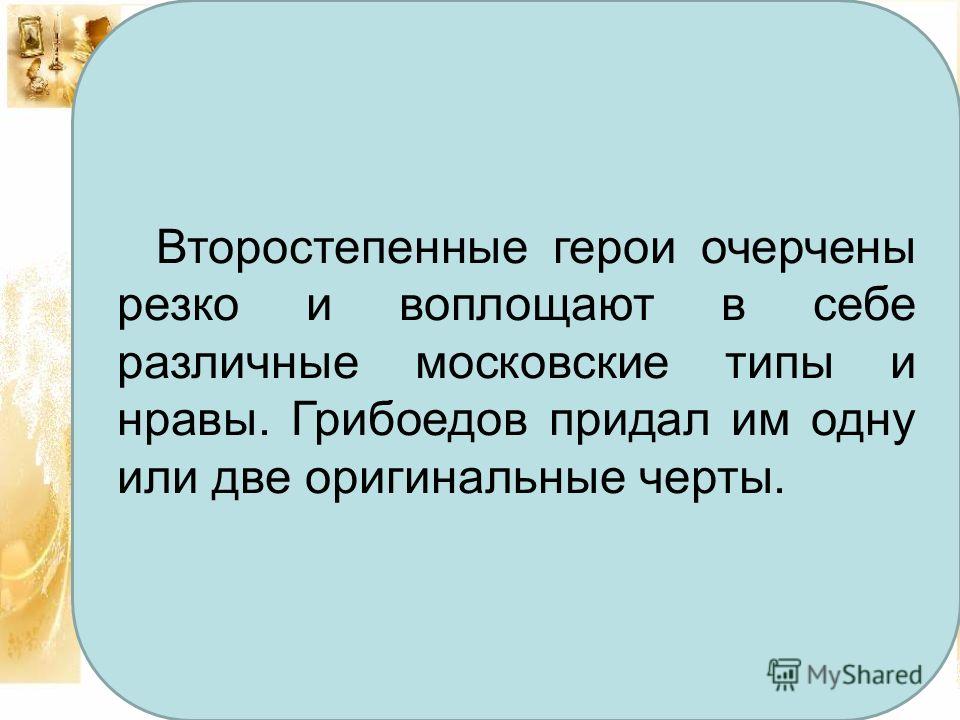
Gorichi, Natalya Dmitrievna and Platon Mikhailovich Natalya Dmitrievna, "young lady", "Fire, blush, laughter, play in all features." Platon Mikhailovich is a retired military man, an old friend of Chatsky, "a Moscow resident and married." He plays the flute, although he is bored, according to Chatsky, he has changed a lot, has become "calm and lazy." He is bored during the ball, the appearance of an old friend revived in him memories of a turbulent youth, but he will not change, he is ready to do everything at the behest of his wife, who powerfully commands her husband, caring little about his spiritual needs (the parallel “my husband is a lovely husband is not accidental”). "And later from the mouth of Molchalin -" Your Spitz is a lovely Spitz ... "
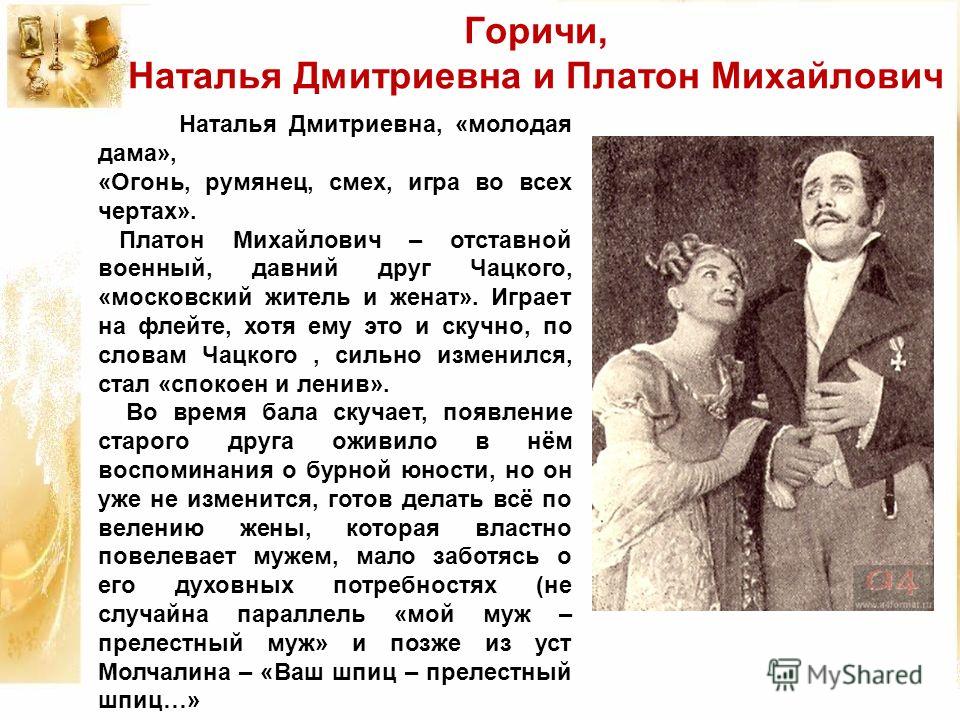
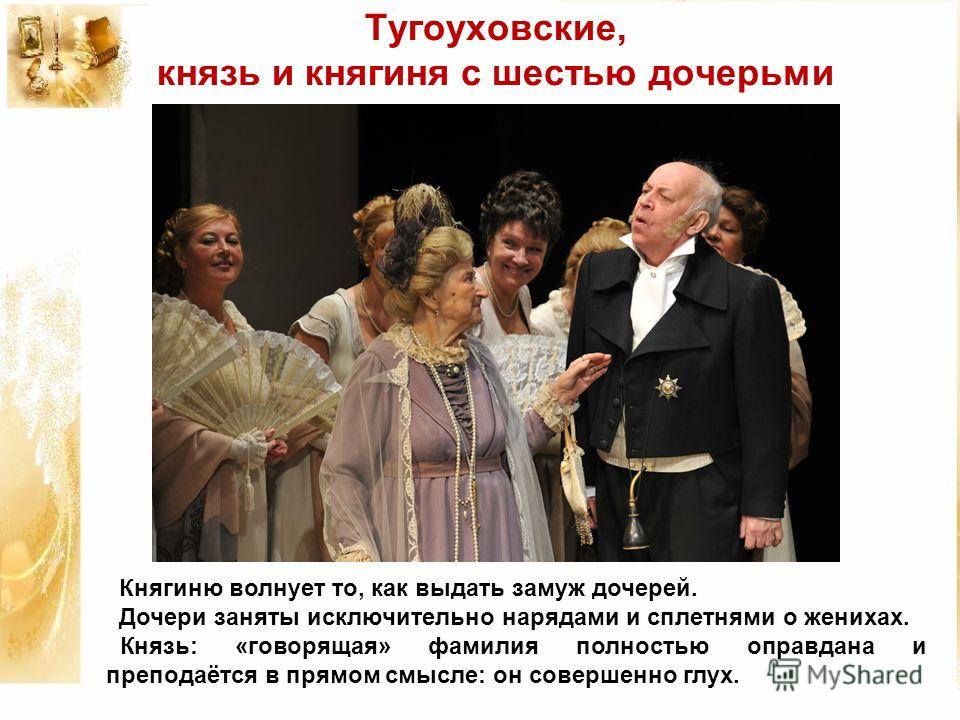
Zagoretsky Anton Antonovich An accurate and capacious description of the character is given by Platon Mikhailovich Gorich: What are the courtesy names of such people? Tenderer? - he is a man of the world, A notorious swindler, a rogue: Anton Antonych Zagoretsky. With him beware: to endure much, And do not sit down at cards: he will sell. The main purpose of life is to serve, to please everyone. Therefore, he is "scold here, but thanked there."
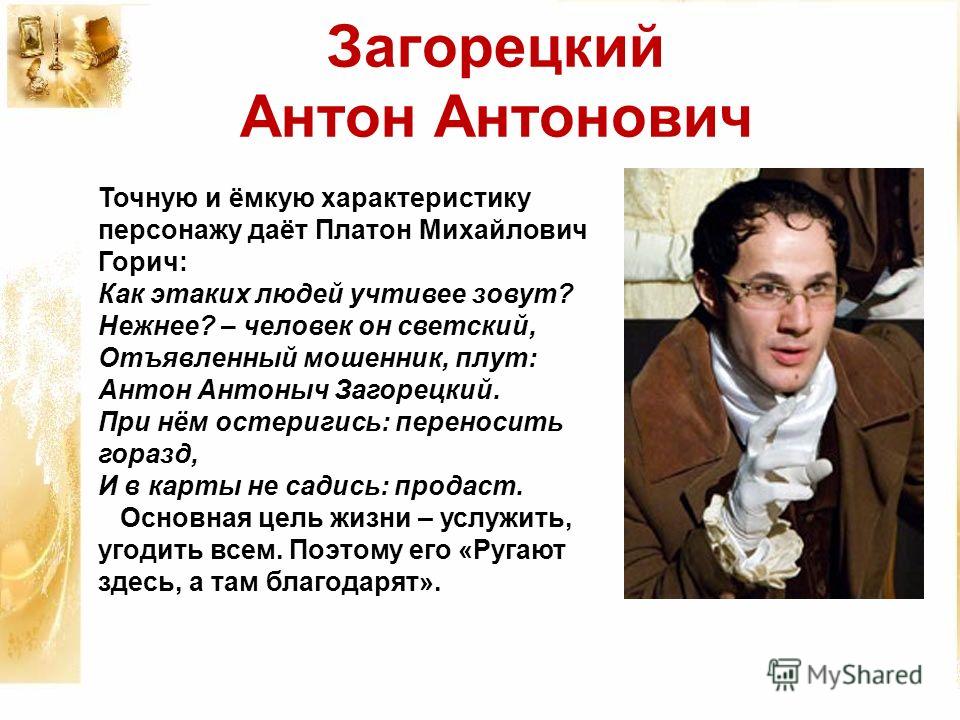
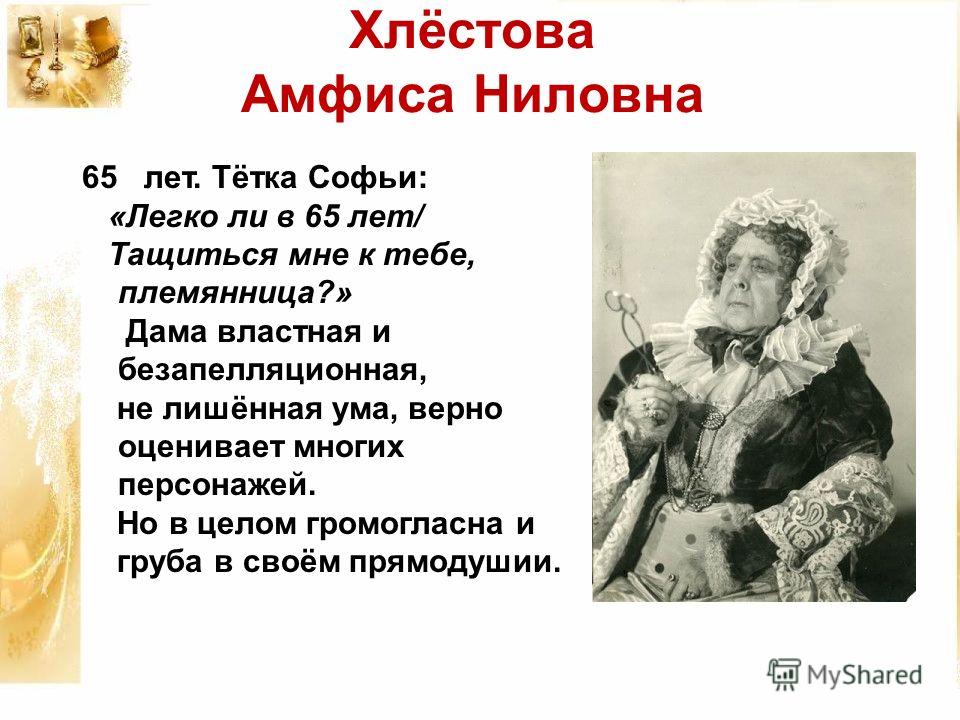
Skalozub Pavel Afanasyevich He comes to the ball last, and leaves one of the first - this negligence was fashionable among the richest and privileged. He does not have special feelings for Sophia, so he does not need to stay longer in the Famusovs' house, he is always a welcome guest here anyway. In addition to everything, he manifests himself as an army dandy, who pulls his waist with a belt so that his chest sticks out with a “wheel” and his voice resembles a roar (“Wheeperous, strangled, bassoon”) The surname is speaking. Oddly enough, he turns out to be practically a double of Chatsky in terms of slander and ridicule. Only the first scoffs from bitterness and fullness of the soul, then the second - because it is fashionable
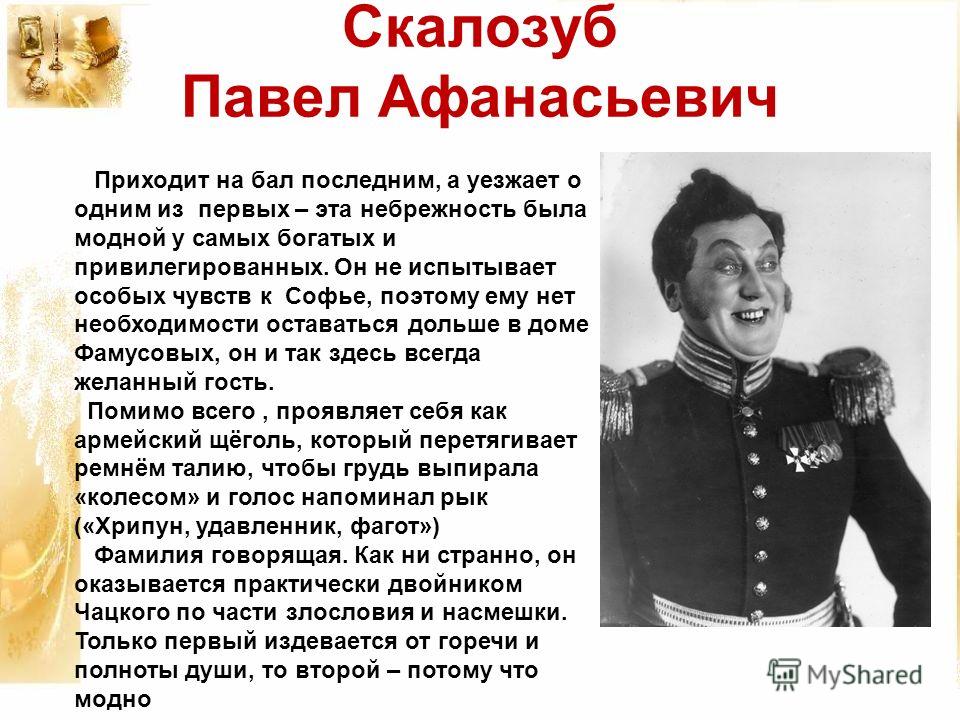
Countess Khryumina: grandmother and granddaughter Countess Granddaughter - “Evil, in girls for a century” Her last remark confirms the evil and absurd character of the old maid, who boasts of her aristocratic origin, looks down on everyone (recall that in the scene of the appearance at the ball, when in there were already many guests in the hall, she complains that she arrived first!) And her last phrase is comical in that it aptly characterizes the society to which she herself belongs. Well ball! Well Famusov! Know how to call guests! Some freaks from the other world, And no one to talk to, and no one to dance with!
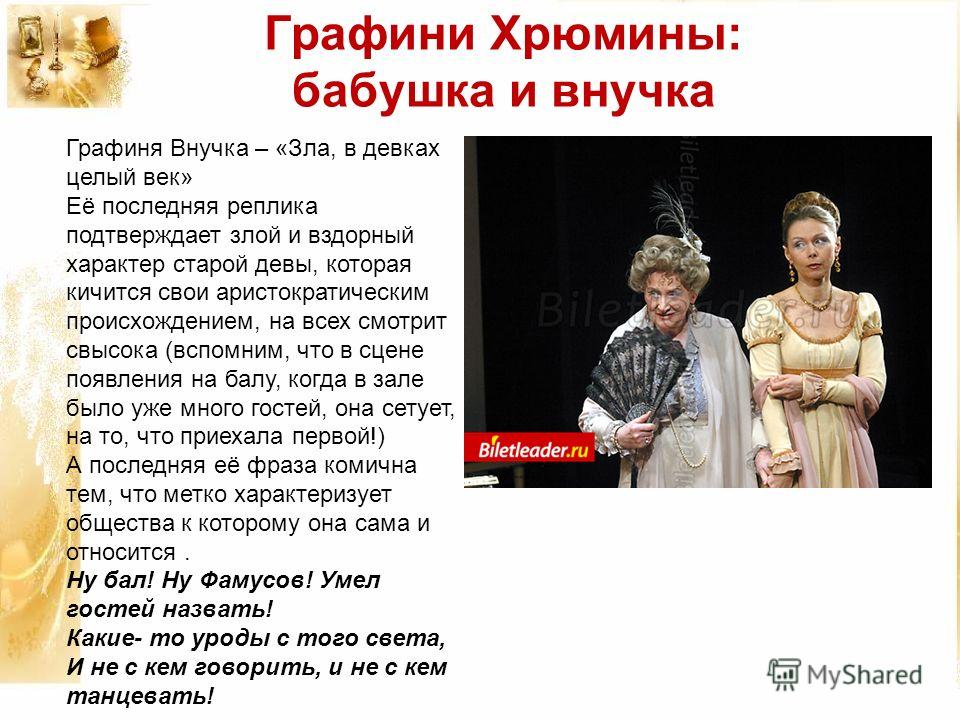
Why did Famusov gather just such a society? The evening is appointed for the sake of Sophia and Skalozub. This is exactly what the owner of the house is waiting for, and Skalozub, as befits the main guest, was late: he knows his own worth well! In the afternoon there was talk of matchmaking, and now Famusov wants to consolidate his position so that Skalozub can make sure that Sophia is a good match for him. That is why he seeks to introduce Skalozub to his influential sister-in-law. The choice of other guests is also not accidental. Is there a rival for Sophia among women? Not! Natalya Dmitrievna with her husband, Countess Khryumina, the granddaughter, is an evil old maid, the Tugoukhovsky princesses have a much smaller dowry, because there are six marriageable girls in the family. Conclusion: Famusov is a good father who cares about the future of his daughter, and a far-sighted prudent person.
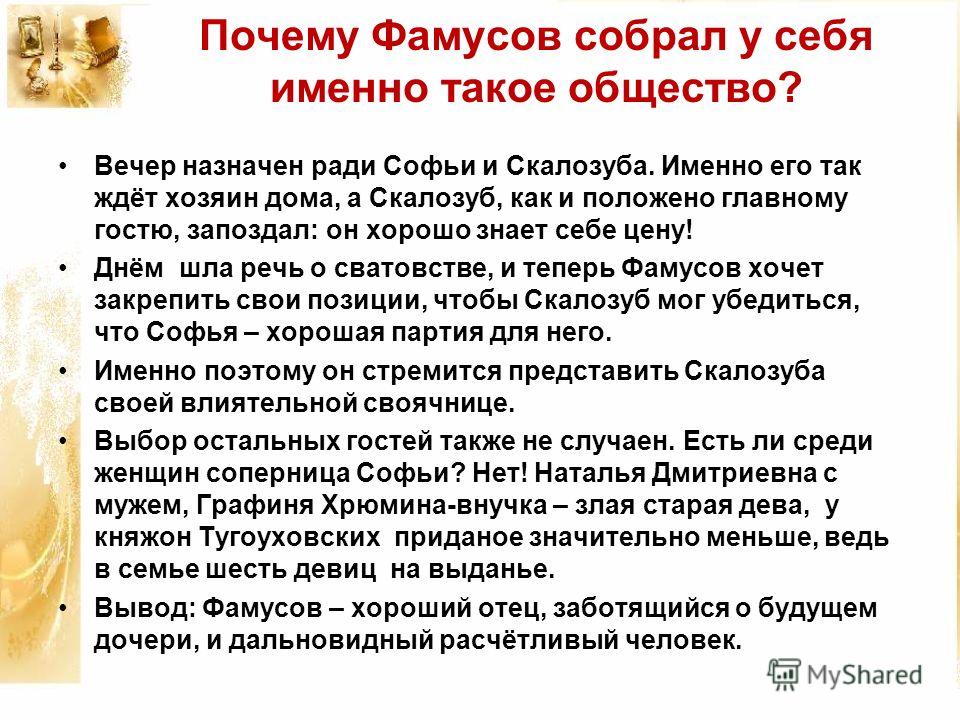
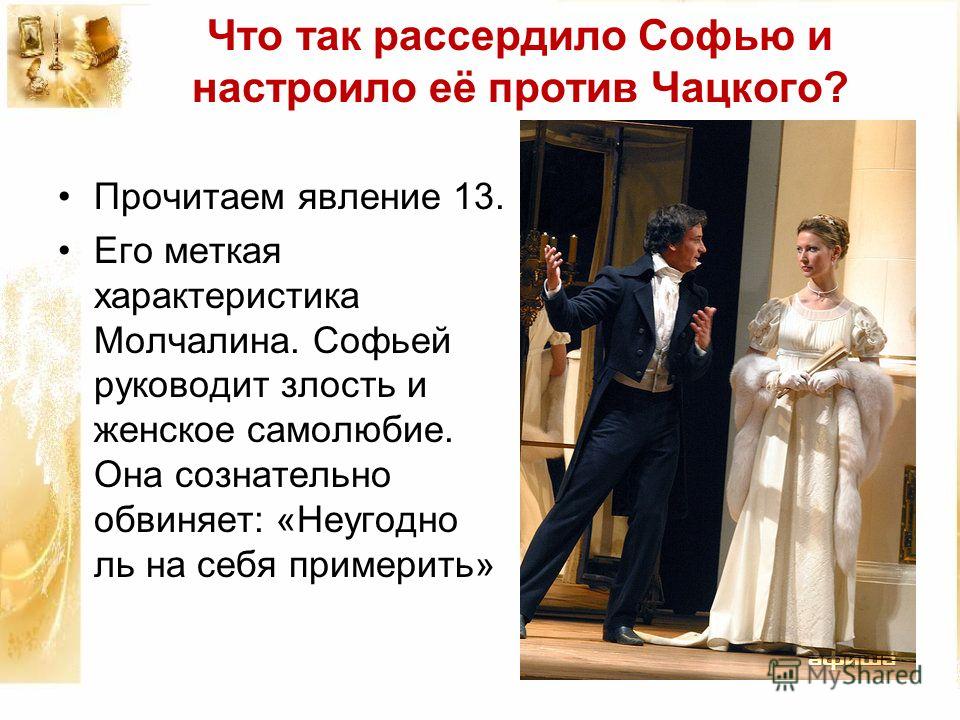
Why is the rumor spreading so fast? Everyone is interested in this, no need to attach importance to words if they come from a person who has gone mad. How does public opinion develop further? It is unanimous. Now the search for the causes of this "unfortunate phenomenon" begins.
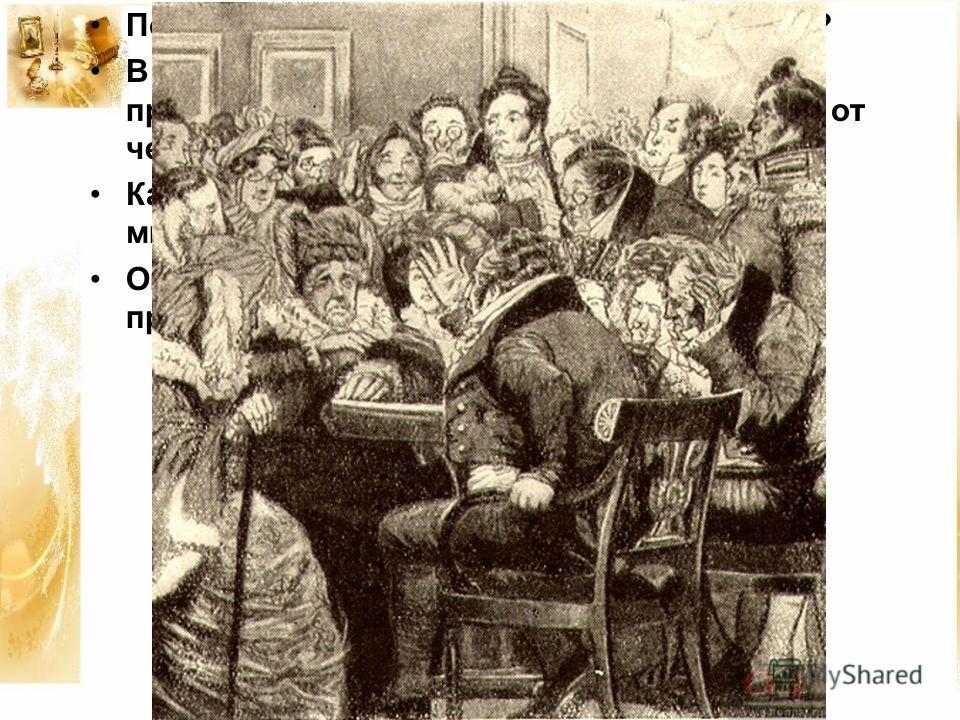
Dispute of guests. An important scene in a play. For all its external comicality, Griboedov shows the process of forming public opinion and its true price: absurd conjectures become the ultimate truth for Famusov's guest. Irritation against Chatsky is growing. Everyone finds their own explanation of the causes of madness. Each of the guests turns out to be an enemy who somehow united in their imagination with Chatsky: lyceums and gymnasiums, a pedagogical institute and Prince Fedor, chemistry and fables, professors, and, most importantly, books. “Learning is the plague, learning is the cause,” exclaims Famusov. The multitude of these "enemies" gradually causes fear. The point, it turns out, is not only in Chatsky, who can be pitied. “There was a man, he had about three hundred souls,” Khlestova’s remark is sympathetic.
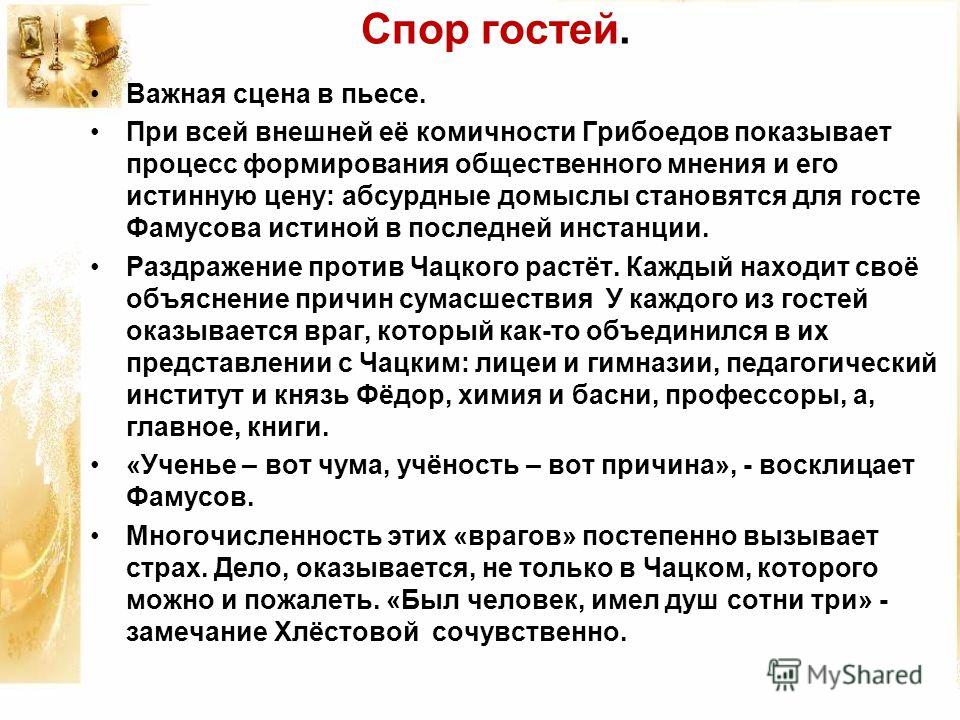
A new incomprehensible direction of life is disturbing, and projects for the suppression of evil are already being born. Puffer is in a hurry to please: in schools "they will only teach in our way: one, two!" Famusov dreams of more: “To collect all the books and burn them.” For all the comical nature of the scene, it is quite ominous: these projects at different times in the history of our country were truly implemented.
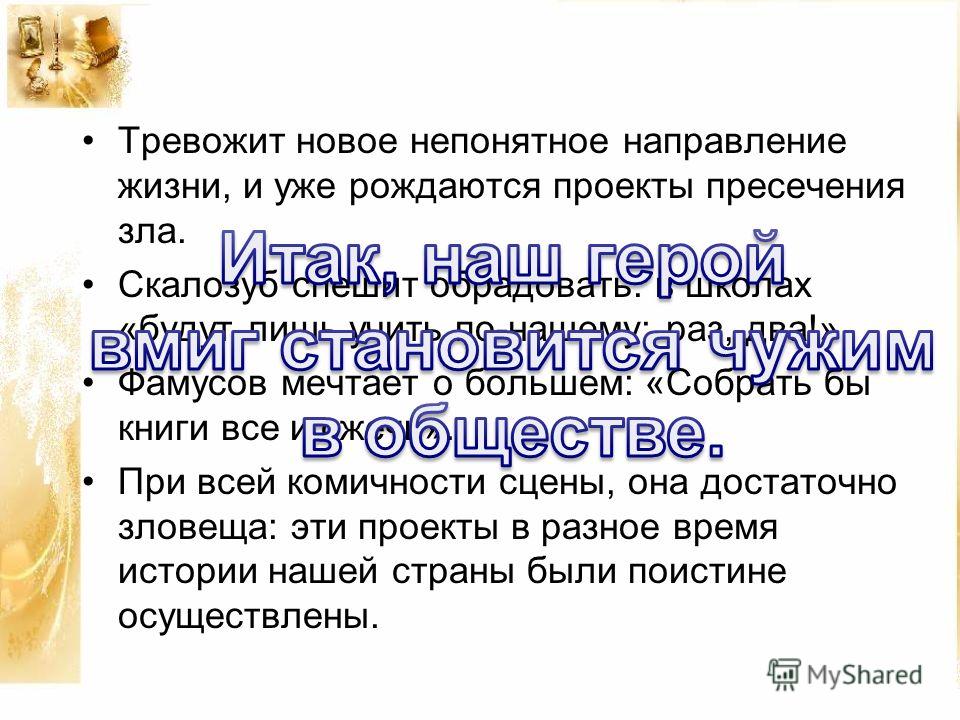
The climax is the most intense moment in the development of the plot, a decisive turning point in the relationship and clash of the characters, from which the transition to the denouement begins. To whom are Chatsky's words addressed? Why? What is the meaning of this episode? Describe the state of the hero at the end of this scene.
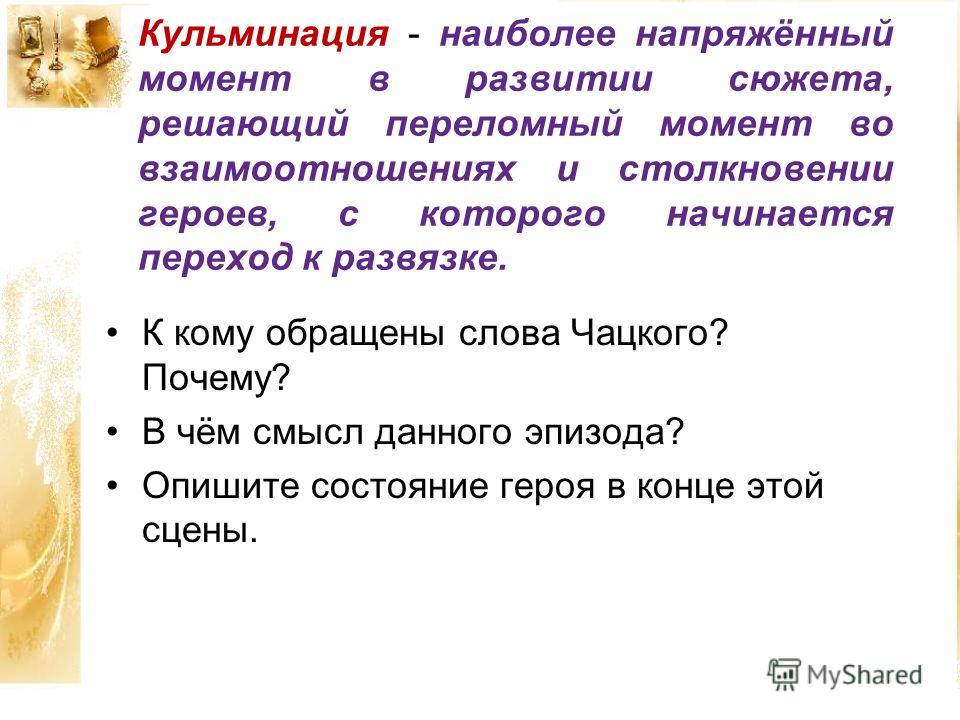
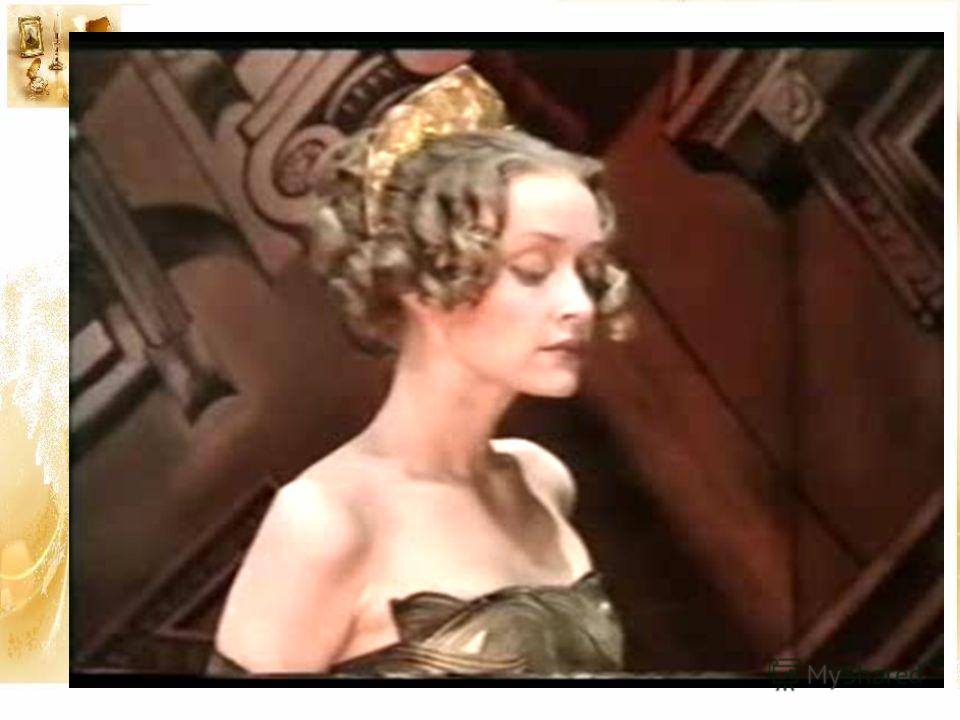
This monologue of the hero is the only one during the ball. Where it is said about high and significant things: - about deceived hopes for love, - about the loss of faith in changing society, mores. Chatsky still turns his monologue to Sophia, not noticing her mockery. And again in the play - a combination of a comic situation and a dramatic state of the hero. jpg htm

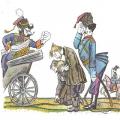 “Lefty” - a summary of the work N
“Lefty” - a summary of the work N Turgenev, "Biryuk": a summary
Turgenev, "Biryuk": a summary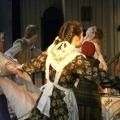 Comedy A.N. Ostrovsky "Poverty is not a vice": a summary of the work
Comedy A.N. Ostrovsky "Poverty is not a vice": a summary of the work